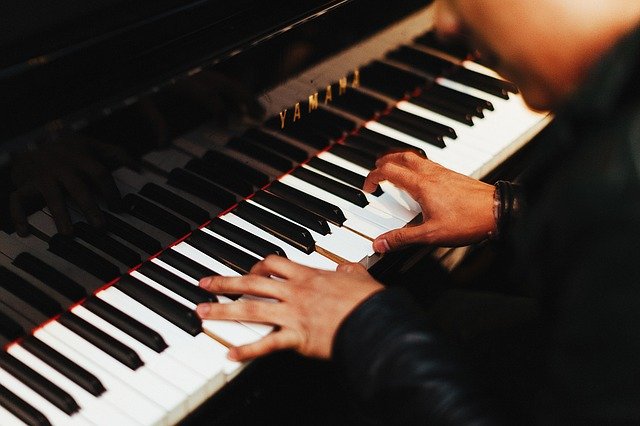Can you be a pianist without ever studying music theory?



Whether you like it or not, the Basic formula is not just a children’s song or a chant to pass the time!
It is simply the beginning of the musical alphabet, the foundation and the musical codification. Essential elements for understanding the language of music. Symbols and names, the basis of all forms of communication, including music.
Just like the letters found on the printed pages of newspapers, books and magazines Sa, Re, Ga, Ma, Pa, Da, Ni, Sa Do allow you to produce a musical discourse. But, before we get that far, let’s say they allow you to write and read a score.
At one time, solfeggio was imagined as a very heavy and obligatory stage for every beginner musician who wished to be able to play an instrument.
Especially in classical music, solfeggio is for musicians, singers and conductors, an indispensable instrument for the performance of a symphony.
But today things are seen differently. The solfeggio, of course, remains central to the teaching of music at music conservatories and high schools. It practically takes up two thirds of the program. But other methods have also surfaced.
And so it is, then, that a higher and higher number of music professionals advocate the practice immediately, to the detriment of music theory; listening, rather than reading the notes and the freedom of creation, rather than the hard study of the conservatory composition. Consequently, we might ask ourselves why music, singing and piano teachers recognize so much importance to solfeggio. What does solfeggio mean for a budding pianist?
Solfeggio for piano: can you learn on your own?
At the conservatory, any music teacher will advise against skipping the obligatory stage of solfeggio. Piano teachers and most music professionals also know that studying solfeggio alone is problematic.
The self-taught method of learning may work well in certain situations. From one case to another, taking into account the context, this initiative can work well:
For musicians who already have several years of instrumental practice behind them. Those who have a solid technical foundation, who have listened to and mastered the piano for years, could indulge in the study and practice of solfeggio by themselves. Such a study will allow them to hone their skills, especially if they wish to enter a work environment related to music.
When you follow music lessons – at conservatories, private music schools, at the home of private teachers – to review your knowledge, complete your piano learning and intend to study genres that are not taught in classical teaching: jazz, soul , blues.
It should be borne in mind that the danger of learning solfeggio as self-taught consists in the following possibilities:
Develop bad habits:Storing incorrect information
Be discouraged and bored, in the absence of a mentor who motivates and pushes to continue in the efforts and difficulties of study.
Among all the conditions mentioned, then, we take into account one thing. Even studying alone, to progress, it will be necessary to take care to gradually increase the level of difficulty.
In short, how to say: study solfeggio alone? It can also be done, but precautions must be taken.
Have you ever thought of taking piano lessons in Milan?
Piano: how long does it take to learn solfeggio?
How many days does it take to learn solfeggio?
Before throwing yourself headlong into the challenge titled “I want to learn to solfiddle immediately”, it is really essential to understand what it is, what such a study implies … under penalty of a real waste of time, with relative frustration.
Just like in the case of a foreign language, solfeggio takes time, motivation and concentration. You don’t become bilingual with four lessons of modern and contemporary languages, with the hours counted and without ever going to a foreign country.
Well, the same is true for the study of music. To read, write and interpret a note it is necessary to know the “linguistic” system, that is the way of coding in music. Ditto, as regards the interpretation of a chord on a score, the understanding of a rhythm. These are not things to be taken lightly, all of these.
Many novice musicians – and notoriously children – have abandoned the musical path, encountering the first adversities, during the study of solfeggio.
The thing is really the pinnacle, if we think about it. In the eleventh century, in fact, the David, created the musical language, inventing the names of the notes, precisely to facilitate access to music, to open it to everyone, in an era in which this art was the prerogative of the wealthy classes. Here You Can check the Music Brands
Except for children who are forced by their parents and for those adults who have been victims of bad teaching (the result is the same: a departure from the whole musical subject), the coding system is very useful.
In short, solfeggio should not be considered a stage to be overcome by holding one’s nose. The study of language must continue forever and forever in the life of a musician.
Of course, it will take a few years before it can really be mastered. To initiate oneself into the practice, to progress, it will be necessary to work constantly and spread over “extended” times. In short, solfeggio is not a tooth to be removed, only to forget everything.
Moreover, if you think that beyond the explicit notions you need to develop an intuition to read “between the lines” – which is true for every discipline, after all – you understand that time really cannot be counted drop by drop. It will be necessary to devote several hours to the study of solfeggio and music theory.
All this work, this effort undoubtedly required and imposed by the study of theory and solfeggio explains, in part, why several musicians claim to have made their way without ever studying. It is not for everyone to have patience and assiduity.
And it is precisely for this reason that piano lessons go crazy on the web without going through solfeggio.



